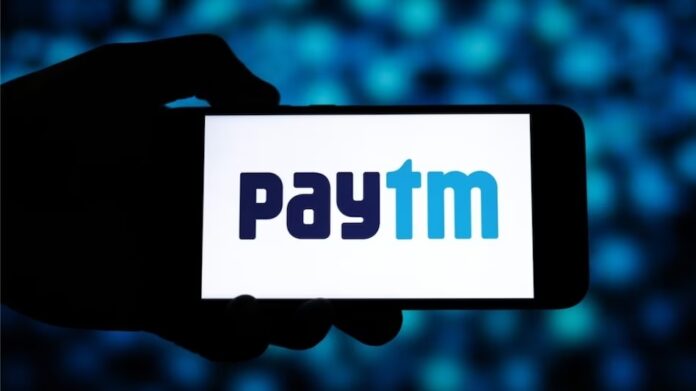In a shocking turn of events, the Reserve Bank of India (RBI) has imposed restrictions on Paytm Payments Bank, one of India’s largest payment firms, by directing it to stop accepting fresh deposits in its accounts or popular wallets. The restrictions also include the suspension of credit transactions and fund transfers, including the use of the Unified Payments Interface (UPI) facility.
Yogesh Dayal, a chief general manager with the RBI, stated that “no further deposits or credit transactions or top-ups shall be allowed in any customer accounts, prepaid instruments, wallets, FASTags, NCMC cards, etc. after February 29, 2024, other than any interest, cashbacks, or refunds, which may be credited anytime.”
However, customers are still permitted to withdraw or utilise their existing balances in various accounts, including savings bank accounts, current accounts, prepaid instruments, FASTags, National Common Mobility Cards, and more.
This move has raised concerns and questions about the future of the popular digital payment platform, and begs the question; what are the motives behind RBI’s actions, how will this impact Paytm Payments Bank, and what do end users need to know?
Reasons for RBI’s Actions
The RBI’s decision to impose restrictions on Paytm Payments Bank stems from persistent non-compliances and material supervisory concerns identified during a Comprehensive System Audit report and subsequent compliance validation report. These reports highlighted issues that warranted further supervisory action.
The exact details of the non-compliances and concerns have not been disclosed by the RBI. Nonetheless, it is evident that the regulator found it necessary to take action under Section 35A of the Banking Regulation Act, 1949.
Impact on Paytm Payments Bank
The restrictions imposed by the RBI will undoubtedly have a significant impact on Paytm Payments Bank’s operations. The inability to accept fresh deposits, facilitate credit transactions, or offer fund transfers will disrupt the bank’s core business activities.
Paytm Payments Bank will need to reassess its business model and find alternative solutions to continue providing services to its customers. The bank has already stated that it is taking immediate steps to comply with the RBI’s directions.
Paytm’s Response to RBI’s Restrictions
Paytm, the parent company of Paytm Payments Bank, has responded to the RBI’s restrictions by announcing its plans to accelerate the process of moving to other bank partners. The company emphasised that it works with various banks, not just Paytm Payments Bank, on different payments products.
In a statement, Paytm stated, “Going forward, OCL (One 97 Communications Limited) will be working only with other banks, and not with Paytm Payments Bank Limited. The next phase of OCL’s journey is to continue to expand its payments and financial services business, only in partnerships with other banks.”
This response indicates that Paytm is committed to maintaining its presence in the digital payments and financial services industry, albeit through collaborations with other financial institutions.
Financial Implications for Paytm
The RBI’s restrictions on Paytm Payments Bank are expected to have a financial impact on Paytm. The company anticipates a “worst-case impact” of ₹300 crore to ₹500 crore on its annual earnings due to the inability to accept fresh deposits.
However, Paytm remains optimistic about its ability to improve profitability and continue its growth trajectory. The company is likely to explore new avenues and partnerships to mitigate the financial implications of the RBI’s actions.
What Users Need to Know
For users of Paytm Payments Bank, it is essential to be aware of the restrictions imposed by the RBI. After February 29, 2024, no further deposits or credit transactions will be allowed. However, users can still withdraw or utilise their existing balances without any restrictions.
Nevertheless, it is advisable for users to explore alternative banking options and consider transferring their funds to other banks or digital payment platforms to ensure uninterrupted financial services. Paytm has assured its users that it will facilitate a smooth transition and work towards minimising any inconvenience caused.
Future Plans of Paytm
Despite the challenges posed by the RBI’s restrictions, Paytm remains committed to expanding its payments and financial services business. The company’s future plans involve collaborating with other banks to continue offering innovative solutions to its customers.
Paytm aims to leverage its existing user base and technology infrastructure to create strategic partnerships that will drive growth and enhance its position in the digital payments landscape. The company’s resilience and determination to adapt to changing regulatory requirements will play a crucial role in shaping its future trajectory.
In Conclusion
The RBI’s restrictions on Paytm Payments Bank have created a significant disruption in the digital payment industry in India. The actions taken by the regulator highlight the importance of compliance and adherence to regulatory standards.
While the immediate impact on Paytm Payments Bank may be challenging, the company’s response indicates its commitment to finding alternative solutions and continuing its operations through partnerships with other banks.
As users navigate these changes, exploring alternative banking options and staying informed about the latest developments will be crucial to ensure seamless financial services. Paytm’s future plans to collaborate and innovate signal its determination to overcome the challenges and emerge stronger in the evolving digital payments landscape.


